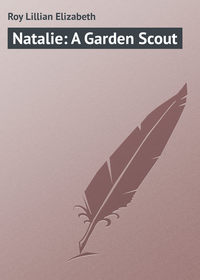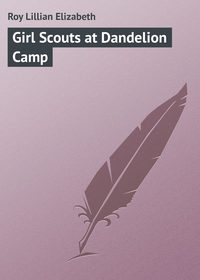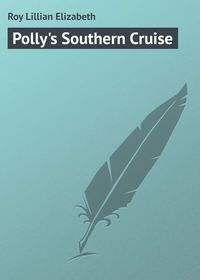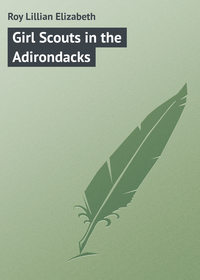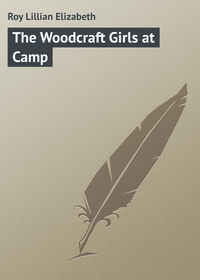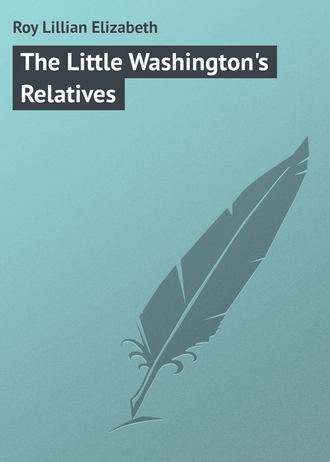
The Little Washington's Relatives
“We’re stuck!” declared Jack, as they tried to shove off from the bank now said to be England.
“And every time I push the water comes up over my shoes,” said George, looking dolefully at his soaked shoes and stockings.
“Let’s pull them off and fling them over on the bank,” suggested Jack.
George, forgetting he was not on dry ground, instantly followed Jack’s idea and sat down on the raft to remove his shoes. At the same time, Jim tried to climb aboard from the creek where he had been pushing, and the result was that the water swept over the top surface of the raft and submerged everything under six inches of water.
“Ah, say! See what you did to me!” cried George, now soaking wet to the waistline.
“Quick! Never mind the wet – there go our tea chests!” yelled Jack, trying to save the drum as it floated away from the raft.
Jim and George, over-anxious to save their cargo, suddenly leaned out to catch the bobbing cartons and boxes, when the unbalanced raft tilted treacherously over with the weight of the three boys and shot them all into the stream.
The screams and shouts of dismay brought the three Americans running to the Boston port, and as they stood laughing unfeelingly at the scene in the water, the British declared they’d get even when they landed in Boston.
“Better get here first!” called Anne.
“We’ll salute you with guns all right!” added John grimly.
“So’ll we! We’ll go back to London and find some guns and shot, too,” promised George, looking at the Americans and then at Jack, who was wallowing through the mud to gain the bank again.
“Jim, haul up your ship for us to load with ammunition,” ordered George, as soon as Jim’s head appeared from under the raft, where he had rolled when the warship keeled over.
But the clever Yanks kept all news of their ammunition from the eyes and ears of the British. Then, having found some long sticks that would answer for guns, the three mariners set sail again on their dangerous journey across the sea – a distance of thirty feet from bank to bank.
This time the raft was kept balanced, while the three stood hugging each other in the center of the boards. Their shoes and coats had been left on the woodpile, so they were not hampered with overmuch clothing.
Now, John had bided his time very patiently, and, feeling that he had been supplanted in the fun and affections of George by his cousin Jack, he determined not to wait till the ship came into port, when the boys could jump from the vessel, to land and find the pyramid of bad apples ready to fire.
So he waited until the loosely-constructed raft reached midstream, where the current of the sluggish water turned it partially around so that the boys faced back at England, and dared not turn about for fear of another submersion.
Taking careful aim, John threw a large and wonderfully squashy apple at Jack. It landed on top of his head, and the juicy, brown contents of the apple-skin ran down over his face, ears and neck.
“Ouch! What’s that?” screamed Jack, the acid of the juice blinding his eyes. He threw out his hands for help as he cried, and thus catching Jim, both slid off the raft a second time, as the craft went under on that side.
George could afford to laugh at the sight, for he still held his footing on the wet and slippery raft; but he laughed too soon. John took another aim and fired a second shot. It hit the boards of the raft just back of George, who was not aware of it, as it simply squashed all over without making a noise.
He moved back a trifle to gain a surer footing, and that action was his own undoing. His foot slipped on the slippery mush, and down he came upon the planks. Again the tipsy raft dove, and again George slid off into the stream.
The middle of the stream was swollen by the rains to a depth of four feet, and Jim only being three feet high, could not be seen, but he could paddle a bit with legs and arms in poor imitation of swimming, so George and Jack found him wildly kicking and striking the water in a vain endeavor to float.
John doubled over in glee at his marksmanship, and the two girls, running to see what the new commotion was about, saw the three boys in the creek, trying to board the raft. With every pull and extra weight on the warship, it dipped gracefully and slipped the children’s eager, clutching hands from its edges.
“You’ll have to wade back to England and sail again,” yelled John comfortingly.
“You just wait till we get over there!” threatened Jack, who suspected the power back of that apple.
“We’ll wait all right! Long time comin’, too!” roared John, slapping his knees.
While Jack pulled Jim to shallow water, George managed to haul the now water-logged raft back to the English shore. The pasteboard cartons and drum were thoroughly soaked by this time and showed signs of collapse, but the soap-box withstood the elements in a fine manner.
During the third trial to cross the tempestuous seas, the cartons holding oatmeal and hominy spread out and the cereals floated down on the face of the creek. The pasteboard sides, now flattened out and soaked, were of no use, so they were kicked off; but in the sudden jerking Jack and George clutched each other madly, or they would have slid into the water for the third time.
“I guess Boston will never get a speck of that cargo!” laughed John, both hands behind his back holding large-sized decayed cannon-balls from the apple tree.
“What’ll you bet?” challenged Jack.
“Bet you three shots to your every one that you won’t land it!” taunted John.
“Take you up! If we land anything we take three shots at you. If you keep us from landing, you have three at us,” cried George, the fire of battle shining in his eyes.
“Here, John, you wade out and upset them,” whispered Anne mischievously.
“They won’t count that as fair!” exclaimed Martha.
“I’ve got a better idea. I’ll get up on that tree-trunk leaning out over the creek and you girls can hand me some heavy clumps of dirt, wood or rocks. I’ll drop it over on the raft so it will tip and roll off the rest of the cargo,” whispered John.
The three sailors were fully occupied in balancing and bringing the raft across the stream where it should go, so they failed to see John scale the overhanging willow tree and lean down to get the rocks and fragments of tree-trunks the girls passed up to him. Not until a stone fell upon the side of the raft where the remaining boxes stood did they dream of danger from a fort.
“Ah, say, that isn’t fair!” complained Jack, not daring to look up or around.
“All’s fair in play!” laughed Anne from the bank.
A second rock landed on the edge of the raft, and then a mass of dirt and dead leaves. After this, the girls assisted in the fusillade, and the boys were not only kept busy avoiding the ammunition of the Americans; but they found the raft tilting so dangerously that another added bit of weight would roll the single remaining soap-box from the ship.
“Jack, it’s dare or die!” said George, nodding to the débris thrown on the raft and the slant of the ship under water.
“What do you say?” wondered Jack.
“Jim’s the lightest – he must take the soap-box and try to reach shore with it while we fight them for a landing out here. If they go for Jim, we can land, and if they keep up with us Jim can scramble up the bank.”
Jim was willing, and Jack thought it was a fighting chance, so the captain of the Dartmouth sidled off into the water and grabbed the box which he had to safely carry up on shore – in the face of the American cannonading.
Had the creek been clear of mud and roots, the British might have landed their sea forces, and thus the history of the American colonists might never have been written as such; but which one of the combating parties could dream of the unseen menace that took a part in this tragic fight?
The two girls and John saw Jim slide off and push the soap-box in front of him, but they felt a sympathy for him, for it was apparent that Jack and George preferred to remain on the raft and let Jim try to land. Then they would claim the right to fire three shots to one at the Americans.
But the three Americans determined to fire as many of the soft apples at the two remaining sailors as they could land, so Jack and George were kept busy ducking and objecting, and Jim had gone half the distance between the raft and the gnarled root, where he hoped to climb up, when a blood-curdling yell was heard, which seemed to rise from his very toes.
British and Yanks alike forgot their enmity and shouted out: “What’s happened, Jim?”
But the little pickaninny, beating the water frantically with both hands, while continuing to howl, tried to jump up from the water.
Jack and George, too wet to mind more water, and John, with the two girls on shore, rushed for the captain to try and save him, for they firmly believed he was about to yell his last earthly breath.
Jack and George reached him first, and instantly caught his wildly waving arms to drag him up on shore. They thought that if it was his time to “climb the golden stairs” he was always singing about, he ought to begin on dry land.
But Jim’s yells grew more appalling as he was half-carried and half-dragged out of the water. Just as John and his two confederates ran up, the cause of all this frenzy was found.
A huge mud-turtle had snapped onto one of Jim’s brown, upcurling toes, and as resistance was brought to bear against this grip, the turtle held on the tighter.
George knew what to do, so he quickly broke its shell with a sharp stone, and Jim almost fainted with relief at his freedom. The girls tried to pet him and offer sympathies, but Jack and George took advantage of the situation.
“Ha! We brought meat to shore! We landed all right!” yelled Jack, dancing like a wild Indian.
“Three-to-one shot,” added George, rushing away to find the ammunition John had plied so thickly.
But most of the apples had been fired, and Jim whispered: “Ah wan’ t’ go hum!”
“Ah, don’t go home now! Your toe will soon feel better, and besides, mammy will ask you where the boxes went from the store-room,” advised Martha.
Jim looked up at her wistfully and said: “Ah’ll tell her dem British sunk ’em all!”
“That would be mixin’ American history, ’cause it was us Yanks that sunk the cargo,” corrected Anne.
“All but the fish!” chuckled Jack, pointing at the turtle.
“If Jim can’t go home, and you girls won’t let us shoot as you agreed, what shall we do, anyway?” sulked George, who felt it was an unlucky day, because no more apples could be found.
“Why not play the Battle of Lexington? That’s fun!” suggested Martha.
“We can use the raft to sail up Lake Champlain, where it can be the first warship of the American navy,” added Anne.
“All right – come on!” declared John, who was glad to postpone his being shot at by two good aims like George and Jack.
“Here, or on the other side?” asked George.
“Well, here’s a good tree for the earthworks on the hill near Boston,” ventured John.
“We won’t need it for Lexington or Concord, but we really ought to have something that would pop like shot, or it won’t seem real,” replied Jack consideringly.
“Can’t we skip those two first fights, and start right in with the burning of Charlestown and the fight on the hill? We can build a dandy bonfire for Charlestown,” said Anne.
“Umm! Never again! We had a fire once when Washington’s homestead burned down, and Jim’s just raisin’ a new crop of wool since then. My hair was frizzled to the roots, too, and our eyebrows were all gone. We looked awfully funny without winkers on our eyes or brows over them,” laughed George, the memory of his burns too fresh to attempt a second fire even in play.
“Then we can’t do it! We may as well go home and wait for the automobile to come back,” said Martha resignedly.
“I don’t see why. We can build earthworks and fight down the British as they come up the hill, and then the British can win the battle and fight us all the way back to Charlestown; and General Washington can come along and pat us on the back for courage and bravery, and then we can all plan together how to get back at the British,” exclaimed George eagerly.
“I’m wet and soggy, and Jim’s going to cry all afternoon, so I guess I’ll go back and change my clothes,” said Jack, suddenly feeling discouraged over the failure of his nation to win an easy battle.
“If we keep away from the store-room, and creep up the front stairs to change our clothes, we can be sitting on the lawn under the canopy when mother gets back,” ventured Martha.
“What about Jim?” worried several voices.
“Let John take him home and dry his clothes, then they both can join us on the lawn, and sit quietly while the sun sets. Mother says she wants us to watch the fall sunsets, as they are always so beautiful,” offered George.
The others stared in unbelief at this daring commander, who suggested quietly admiring sunsets, but each felt that it would be as well to seem meek and quiet after the raid on the boxes in the store-room.
So the good advice was followed, but Martha did not dream that Jim had dumped the washing-soda over the orange pekoe tea, so that it was impossible to sift or wash it out. Hence, the Parkes had no tea that afternoon, nor, did the cook have her fragrant beverage at each meal until the new chest came from Washington.
“Well, didn’t the Yanks sacrifice tea to their patriotism that time in Boston?” asked Jack of his mother, when the story was told.
CHAPTER VII – BATTLES ABOUT NEW YORK
“What shall we play to-day?” asked Anne Davis, as the four cousins emerged from the breakfast-room.
“Anything you like,” replied Martha politely.
“Did Jim come home last night?” asked Jack.
“Sure! And his mammy doesn’t know he had anything to do with that tea,” laughed George.
“Well, let’s call him and decide on some game,” said Jack. So Jim was whistled for, and his shining face soon appeared from the kitchen-areaway.
As the five playmates wandered across the lawn to the ever-welcome meeting-place of lilac bushes, they heard a shrill call and John soon appeared from the hedge through which he crept.
“We don’t know what to play,” explained Martha to John, as the latest member to the party wondered at the calm and quietness of the warriors.
“Let’s finish Bunker Hill,” he suggested.
“Oh, we’re sick of Boston! It’s all right in a way, but not for a second time,” said George, thinking of the battle of the day before.
“Then let’s have a fight on Long Island, when the British drove the Americans from Brooklyn, to cross the East River to their main army,” said John.
“I don’t want that either! Can’t we go somewhere or do something different?” asked Martha.
“If Washington’s army had only used submarines or airships like they do at present, we could have heaps of fun that way,” hinted Jack meaningly.
“Oh, say, why can’t we build an aeroplane and try it?” cried George eagerly.
“What of?” asked John.
“Where can we fly?” said Anne.
“Well, we might experiment back of the barns. There’s a telegraph wire which runs across our property there, and we can run a plane down the wire that steadies the pole,” explained George.
“Or we could stretch a wash-line near the ground from the barn-eaves to the pole, and toboggan an airship down that way,” added Jack.
“I’d rather play Washington crossing the Delaware, or at his farm when he was through being president of the United States,” said John, tenaciously clinging to the times of his ancestors.
“No one can cross the ice on the river when it’s fall!” scorned George conclusively.
“Then we can have the farm!” insisted John.
“Hoh, we have farm enough – no one wants to play farmer!” objected George.
“Oh, well! Play anything then – I don’t care!” snapped John.
But a call from the veranda settled all such troubles. “Children, who wants to go on a picnic?”
“I do! I do!” sounded from every throat, and the children speedily rushed over to ask questions about the proffered treat.
“Everybody secure permission at home, and meet us here in half an hour. I’ll look after the luncheon, so hurry up,” said Mrs. Parke.
Everything else was forgotten in the bustle of preparing for the unexpected outing.
“Where are we going, mother?” asked Martha.
“Why, aunty wishes to see Mount Vernon, so I thought it would be a fine drive there in the machine. We can have lunch in the woods along the road, and be home again before night,” explained Mrs. Parke.
Before she had quite finished speaking the children were shouting and jumping with delight. Jim alone stood silently by, his face expressing his state of mind, for he had no idea that he was to be included in this joyous party.
“Hey, Jim! What’s the matter? Aren’t you glad and excited about it?” cried George, catching him by his thin little arms and whirling him around in a dizzy dance.
“Whad should Ah be glad affer?” mourned Jim.
“Because you’re going, too, if mammy will consent,” said Mrs. Parke kindly.
“Me! Kin Ah ride wid yo’ all to dat Mount Wernon?” yelled Jim shrilly. Then not waiting for a reply he rushed away, and was soon out of sight around the corner of the house.
Every one laughed, and John was told to run home and get his coat and cap. In a few moments Jim was back again, talking six ways at once.
“Mammy say, da’s fine! Is Ah goin’ t’ dress up lak fo’ chu’ch? Is we goin’ right off quick? Has Ah got time t’ have granny sew buttons on m’ boiled shirt an’ get a baff?”
“Yes, yes, yes! Run along and do everything you say,” laughed Mrs. Parke, giving Jim a gentle push in the direction of the kitchen.
In half an hour’s time every one was waiting on the veranda steps for Jim. The large car was puffing impatiently to be on the road, when a gayly bedecked personage emerged from the areaway.
“Oo-oh! It’s Jim!” yelled George, clapping Jack’s back.
“So ’tis!” breathed Martha as if a louder tone would dispel the illusion.
“Is Ah dressed enuff?” asked Jim, beaming.
“I should think so – the best of the lot of us!” admired Jack.
Jim minced over to display his fine feathers to the eyes that comprised his world. He had on a pair of patent leather pumps outgrown by George, a pair of Scotch plaid socks such as were worn by children some years ago. Between the top of the socks and his claret-colored velveteen breeches, his dark-brown bowed legs made a somber break. His starched shirt was too tight, but to obviate this failure, young mammy had pinned a lace jabot in front, where the black cloth Eton opened. A straw alpine hat presented to Jim’s father by Mr. Graham, topped this unusual costume.
Although some of the children felt like giggling, they were too polite, and thought too much of Jim to let him see what they thought of his travelling costume. So, with heart bounding joyously, he climbed in “wid dee comp’ny” in the automobile.
It was a long but delightful drive to Mount Vernon, and on the way there, Mrs. Parke told the children many interesting things in connection with the Washingtons.
“Of course we all know how Mount Vernon came to belong to George Washington, don’t we?”
“We do!” exclaimed George, looking at Martha and his cousins.
“I don’t, Mrs. Parke – and I don’t b’lieve Jim does,” said John.
“Ah knows that Garge General Washerton was the fust fadder uv dis country, but Ah nebber hearn who its mudder was,” replied Jim seriously.
Every one shouted with laughter at the unexpected remark, and the chauffeur smiled, too.
“I’ll tell you about Mount Vernon first, and then we may have time to explain to Jim about the parentage of America,” said Mrs. Parke, patting the woolly head beside her.
“I have read to you how Augustine Washington, father of our famous George Washington, was twice married. Two sons of the first marriage and six children of the second marriage. At the father’s death, his estate was divided among the children. The oldest son inherited an estate near Hunting Creek, afterward called Mount Vernon by him, after his friend and beloved hero, Admiral Vernon.
“This estate consisted originally of 2,500 acres, but later considerable land was added to it, until it became one of the best country estates in Virginia.
“The second son by the first marriage inherited an estate in Westmoreland. George Washington was left the land and mansion where his parents lived at the time of the father’s death. Each of the other children inherited farms of from six to eight hundred acres.
“Soon after leaving school George went to live with his brother at Mount Vernon, the mistress of which was a sister of William Fairfax, distantly related to Lord Fairfax. In this way George became acquainted with William Fairfax, who invited the youth to visit him at Belvoir.
“During this visit George made the acquaintance of the sons and daughters of his host, and also received a recommendation to Lord Fairfax for a position of surveyor.
“The study of practical surveying formed an important part of Washington’s career, as it stood him in such good stead later in life.
“Lawrence Washington had pulmonary trouble and was told to seek a milder climate. George was a great favorite with the oldest member of the Washington family, and he induced him to accompany him to the Barbadoes to recuperate his health, but as it did no good he returned home, and shortly after passed away.
“In his will he appointed George Washington one of his executors, and the estate of Mount Vernon was bequeathed to his daughter. In case of her death without heirs the property was to pass to George. Thus it was that at the early death of the daughter of Lawrence, Mount Vernon became the property of George Washington.”
“But he didn’t need it when he married Martha Custis, ’cause you told us one day that she had a big estate of her own,” said Martha.
“Yes, she was the mistress of a fine plantation called ‘White House,’ and from this home she was married to her second husband, George Washington. But soon after this union she removed to Mount Vernon, which was ever after known as her home and family residence.
“To make this house a fitting home for the bride George ordered many items of art and luxury from his agent in England. Among other things he ordered a bust of Frederick the Great, little dreaming that not many years hence his walls would be adorned by a portrait sent him by the monarch himself and autographed with the words, ‘From the oldest general in Europe to the greatest general in the world.’
“Among the memoranda of his estate, business and house bookkeeping there can still be seen in the library or study at Mount Vernon many of the aged papers filed away since the day he first entered the items on his accounts.
“We will also see some of the ‘tabby-colored’ gowns sent to Martha Washington from England, and the laces, fans, shell combs and satin slippers worn by her and never dreaming at that time that a group of distant descendants would visit the place to gaze at the articles she once wore or handled as we do everyday things.”
“Mother, will we see some of Washington’s swords and guns?” asked George, plainly showing the bent of his desire.
“Yes, we will see many interesting things belonging to General Washington, from the time he first became owner of Mount Vernon to the day he passed away forever. Since the organization formed to protect and hold this place sacred to the memory of the illustrious Washington many things not originally belonging to the estate were received and placed on exhibition there for the public to see. Among some of these relics are the treasured articles belonging to descendants of the friends of Washington, and the interesting narratives of how they came into the possession of the articles furnished historical stories.”
Questions and answers about the general and his home so soon to be seen by the children occupied much time, and when these historical facts began to lose interest for the juvenile members of the party Mrs. Davis suggested that they stop and have their picnic lunch, after which they would conclude the trip.
This met with great approval, and soon every one was busy munching chicken sandwiches or enjoying juicy fruit. Half an hour was the time allotted for lunch, and then Mrs. Parke gave the signal for every one to climb back in the automobile.


